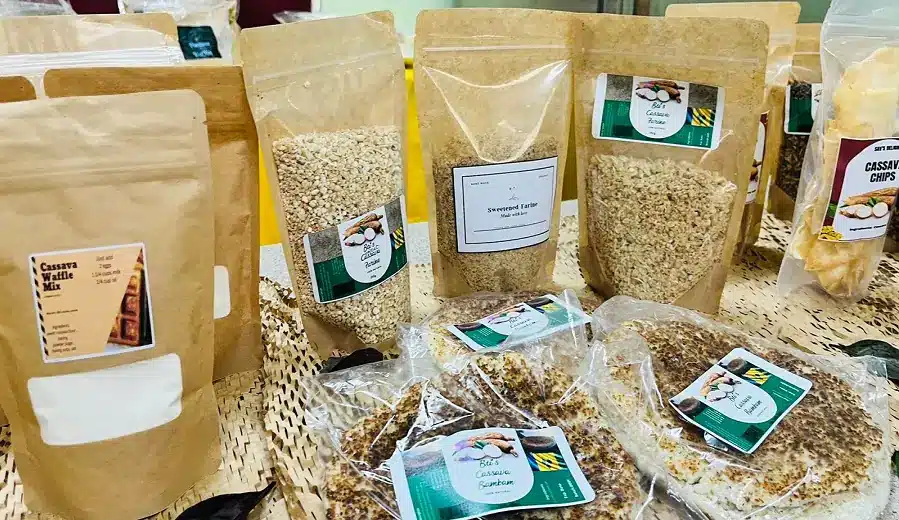- Barrouallie Technical Institute Concludes Innovative 13-Week Agroprocessing Program
The Barrouallie Technical Institute has proudly wrapped up an intensive 13-week training program in NVQ Level 2 Agroprocessing and Food Safety, led by Michker N. Edwards, a distinguished lecturer at the SVGCC Division of Technical and Vocational Education. This initiative drew participants from various backgrounds, all keen to advance their skills in agroprocessing.
The program, held twice weekly, covered 10 CVQ Level 2 standards across nine comprehensive modules. Participants delved into essential topics such as agroprocessing fundamentals, hygiene and sanitation, HACCP, food safety, preservation methods, and food microbiology. The curriculum was a blend of theoretical knowledge and practical application, ensuring that participants could immediately put their new skills to use.
A notable aspect of the course was the integration of sweet cassava donated by the Ministry of Agriculture. Participants crafted an array of cassava-based products, including cassava pone, granola, chips, bam bam, starch, buns, sweetened farine, and waffle mix. They also explored creating composite flours from plantain and sweet potato, leading to innovative dry mixes like cassava-plantain flour waffle and plantain flour chocolate mixes.
The hands-on sessions featured the production of diverse agroprocessed goods such as wine, cheese, sorrel liqueur, and a variety of pepper sauces with flavors like passionfruit, pineapple, and mango. Additionally, the course included the creation of chocolate bonbons with tropical fillings such as passionfruit and sorrel.
Participants also developed convenient frozen mixes, including ducuna, sweet potato pudding, and cassava pone mixes, catering to the busy schedules of modern families by simplifying the preparation of traditional foods.
This program also promotes gastronomic tourism by leveraging local agricultural products and offering them to both residents and visitors. By highlighting the unique culinary heritage of St. Vincent and the Grenadines, the initiative aims to enrich the local food scene and attract culinary enthusiasts globally.
The course also emphasized the importance of packaging and labeling, ensuring participants understood branding and legal compliance. The program concluded with a mini-exhibition, allowing participants to showcase their creations, receive feedback through sensory evaluations, and celebrate their achievements.
This training is part of broader efforts to improve local food processing capabilities, enhance food safety, and add value to agricultural products in St. Vincent and the Grenadines. The successful completion of this program represents a significant step towards boosting food security and economic growth in the region.




